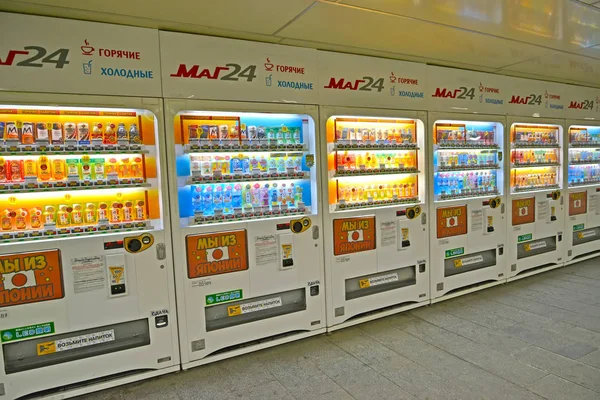Do you know some businesses never fail? This guide explores six tried-and-tested business ventures in the US that boast low failure rates and promise stable returns
Apart from making huge profits(profitability)and having reliable cash flows(liquidity), business survival (sustainability) is the other key business goal. Finding a business idea with a high success rate can significantly increase your chances of prosperity.
Whether you’re seeking a new venture or expanding your investments, these ideas are worth your attention. From laundromats to real estate investments, these opportunities give you businesses that never fail.
Related: The Most Unique Business Ideas In Kenya In 2023
Best Businesses with the lowest failure rates in the US
| Business Idea | Success Rate | Pros |
|---|---|---|
| Laundromats | 94.8% | Consistent cash flow, recession-proof, minimal employee needs |
| Real Estate (rental Properties) | 93% | Passive income, tangible assets, long-term financial stability |
| Self-Storage Facilities | 92% | Automated operations, minimal staffing requirements |
| Vending Machines | 90% | Affordable, scalable, high-profit margins |
| Trucking and Home Delivery | 76% | Low upfront costs, high success rates |
| Senior Care Centers | – | Government subsidies and changing demographics offer a promising business opportunity. |
Laundromats

Laundromats have an impressive success rate of 94.8 % over five years. These establishments offer a straightforward business model, providing essential services that remain in demand regardless of economic fluctuations. Laundromats are known for their consistent cash flow, making them recession-proof investments. With minimal employee needs and the potential for 24-hour operation, laundromats are not only profitable but also require relatively low operational overhead.
Real Estate (Rental Properties)
Rental properties are the number one passive income earner in the US. With a success rate of 93%, investing in real estate for rental purposes is a good business idea for any entrepreneur. Owning rental properties such as land offers you tangible assets that tend to appreciate over time, providing long-term financial stability and wealth accumulation.
Additionally, rental properties allow for diversification within a real estate portfolio. Beyond rental properties, real estate offers diverse opportunities, including commercial properties, land development, and fix-and-flip projects. Leveraging bank financing allows investors to amplify your returns and expand your real estate portfolios while minimizing upfront capital requirements.
Self-Storage Facilities
Self-storage facilities have emerged as a lucrative investment opportunity with a success rate of 92%. Technology advancements have transformed these facilities’ operations, enabling automation and remote management. With keyless entry systems, security cameras, and automated billing processes, self-storage businesses can operate efficiently with minimal staffing requirements. Moreover, the growing demand for storage solutions amidst urbanization and changing lifestyles makes self-storage facilities a resilient and profitable business venture.
Trucking & Delivery services
Trucking businesses offer high success rates and low upfront costs, making them an attractive option for entrepreneurs. Whether it’s long-haul transportation or last-mile or home delivery services, the transportation industry remains essential for facilitating the movement of goods across the country with the advancement of e-commerce. Investing in a fleet of trucks provides inherent value and the potential for substantial returns, particularly in regions with robust economic activity and logistics demand.
Vending Machines

Vending machine businesses round out our list with an approximate success rate of 90%. These ventures are characterized by their affordability, scalability, and high-profit margins. Vending machines offer a diverse range of products and can be strategically placed in high-traffic locations to maximize profitability. With minimal operational overhead and the ability to scale the business as demand grows, vending machine businesses are ideal for aspiring entrepreneurs seeking a low-risk investment opportunity.
Senior Care Centers
Senior care centers offer a promising business opportunity, supported by government subsidies and changing demographics. While specific success rates may vary, senior care facilities benefit from consistent demand for elder care services. By providing essential care and support to aging populations, senior care centers can generate stable revenues and contribute to the well-being of communities.
The 5 Worst Businesses to Avoid
The list above gives you the best businesses to consider. The list below has business ideas with the highest failure rates and inherent challenges. You may need to approach them with more caution.
| Industry | Failure Rate | Reasons for Failure |
|---|---|---|
| Construction | 25% | Project management challenges, cash flow issues, market fluctuations |
| Transportation | 25% | Intense competition, regulatory hurdles, rising operational costs |
| Professional Services | 19.4% | Difficulty in client acquisition, pricing strategies, talent retention |
| Finance and Insurance | 16.4% | Regulatory compliance burden, market volatility, changing consumer preferences |
| Food Service | 15% | High competition, narrow profit margins, operational challenges |
These industries face distinct challenges contributing to their high failure rates. In construction, businesses struggle with managing projects efficiently amidst cash flow constraints and unpredictable market conditions. Transportation companies grapple with fierce competition, regulatory complexities, and escalating operational expenses. Professional services encounter difficulties in acquiring clients, determining optimal pricing strategies, and retaining skilled professionals. The finance and insurance sector contends with stringent regulatory requirements, market volatility, and evolving consumer demands. Meanwhile, the food service industry battles intense competition, tight profit margins, and operational hurdles, leading to a significant failure rate within the first year of operation.
Which Businesses Fail?

Is your business likely to fail? As illustrated above, the reasons why businesses fail include compliance hurdles, competition, and program mismanagement. If you are not sure whether to commit your money and efforts, consider the following tell-tales of businesses that fail.
- Low Entry Barriers: Industries with low barriers to entry tend to attract many competitors, saturating the market and eroding profitability, presenting challenges for sustaining business operations.
- Insufficient Cash Flows: A business with a chronic shortage of cash flows to cover operational expenses and necessary investments can impede growth and jeopardize the business’s long-term viability.
- Narrow Profit Margins: businesses with slim profit margins present ongoing difficulties in covering expenses and reinvesting in growth initiatives, potentially undermining the business’s financial health.
- Low Demand: Offering specialized products or services that fail to address significant market needs or desires typically leads to low demand and eventual business failure, as customers seek alternatives that better fulfill their requirements.
- External shocks such as the COVID-19 pandemic, the Ukraine-Russia war or climate change risks.
Why do Businesses Fail?
Are you wondering why businesses fail? Establishing and managing a business is a complex process. You will face many internal and external challenges including legal, financial, and technological hurdles likely to fail your business. To understand if your business is on the route to failure, compare it against those business challenges or reasons making it likely to fail.
- Operations Mismanagement: The inability to establish and maintain efficient operational systems and processes results in inefficiencies, wasted resources, and decreased productivity.
- Financial Mismanagement: Poor financial planning, budgeting, and control lead to cash flow problems, inability to meet financial obligations, and eventual bankruptcy.
- Poor Business Strategy: Lack of a clear and effective strategy for market positioning, growth, and competition results in directionless operations and missed opportunities.
- No Leadership: The absence of strong leadership to inspire, guide, and drive the business forward leads to disorganization, lack of motivation, and low employee morale.
- Bad Location: Choosing an inappropriate location for the business affects visibility, accessibility, and customer footfall, impacting sales and revenue.
Read Next: Which Business Ideas in Kenya make the most money?
Conclusion
In conclusion, these six fail-safe business ideas in the U.S. offer aspiring entrepreneurs a pathway to success in the competitive business landscape. Whether it’s investing in laundromats, rental properties, real estate, self-storage facilities, trucking businesses, or vending machines, these ventures have proven track records of stability and profitability. By leveraging data-driven insights and industry trends, entrepreneurs can make informed decisions and embark on their journey to entrepreneurial success with confidence and conviction.



